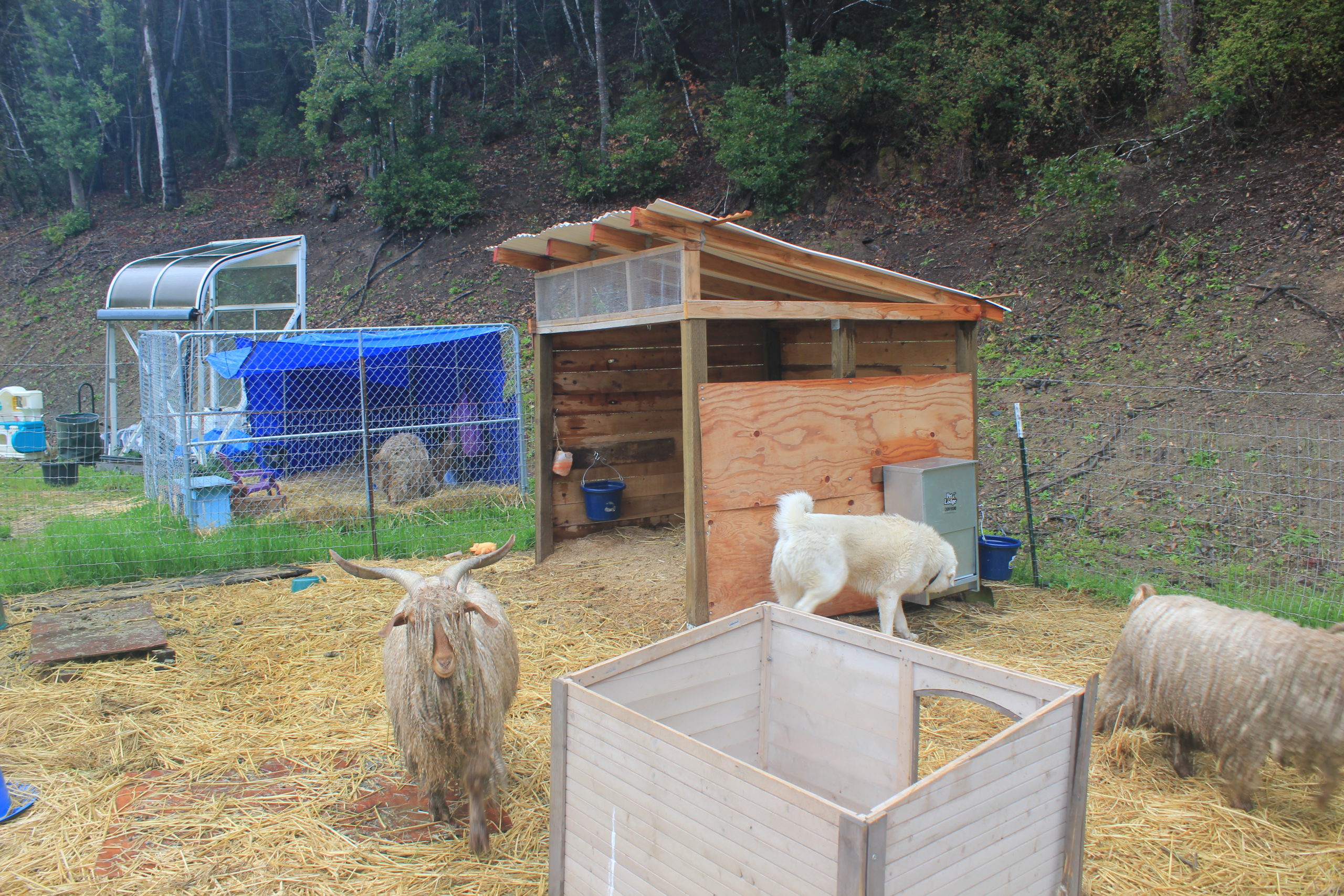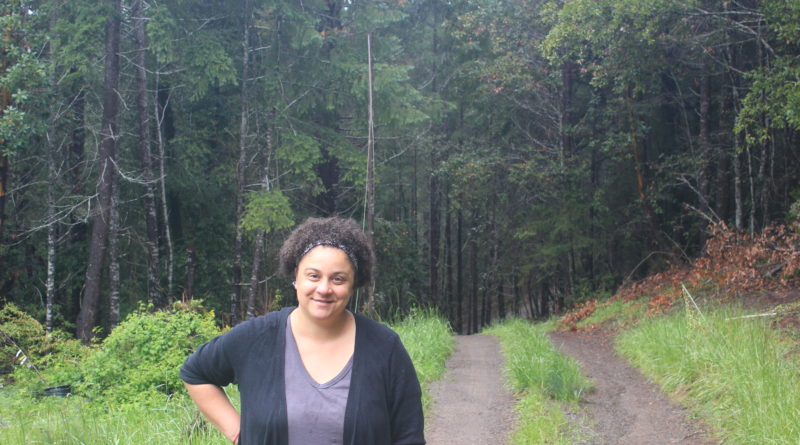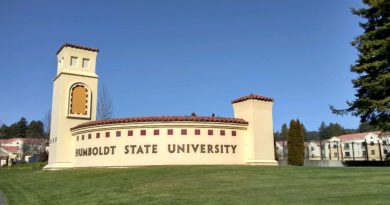Cal Poly Professor buys land to start BIPOC community farm and retreat
Tucked away near Redwood Creek up highway 299 rests Earthseed Laboratories, a developing community garden and retreat center grounded in the ideologies of abolitionist ecology and BIPOC land injustice. Cal Poly Humboldt Professor Dr. Renee Byrd is a proud biracial Black woman, mother, activist, scholar, abolitionist and founder of Earthseed.
When you first reach Earthseed you are greeted by 40 acres of beautiful green woodland and by Greta, a Akbash Pyrennes livestock guardian dog who gives the best hugs. The new farm has three adult angora goats and two that are a few weeks old. Earthseed is still years in the making, but in time Byrd hopes to include a wider variety of animals on the farm including ducks, chickens and geese.
“It’s definitely kind of an overgrown forest and the goats are eating up that poison oak and dandelions and pooping which is rebuilding the soil in this part that the previous owner graded and there’s been a lot of erosion so we’re trying to rebuild the top soil,” said Byrd. “We looked at other lands that would be someone’s image of pristine wilderness, but the first thing that I thought of when I saw this land was that it is in need of some healing so the idea is that the process is happening together.”
For now the Indigenous and Black Solidarity Garden is growing vegetables like pumpkin and corn.Byrd’s future goal is to grow an assortment of vegetables, medicinal herbs, native plants, mushrooms and so much more. She has a handful of volunteers and collaborators and in time hopes to gain more helping hands.
“On the weekends I’ve been making the time to start bringing the Indigenous and Black Solidarity Garden to life. We’ve been building beds, bringing lumber, soil, seeds and planning water systems to be able to support it in the long term, “ said Karely Vienneau, a member of the Earthseed community and recent Cal Poly Humboldt graduate. “It’s just getting started. Right now we’ve built three beds and that’ll be expanding in future years.”


Byrd was born in Southern California but grew up on the go as her family moved around often, briefly living in Humboldt for four years. She earned her degree in ethnic studies from Mills College in Oakland, California, and went on to get her Ph.D in feminist atudies from the University of Washington, Seattle.
Byrd returned to Humboldt in fall 2013 as a Cal Poly Humboldt professor to work in the english department. Her earlier work was largely centered on prison activism and grounding prisoner reentry. Byrd currently has a variety of subjects she teaches regarding critical theory and environmental speculative fiction.
Byrd’s two favorite books, “Parable of the Sower” and “Parable of the Talents” by Octavia Butler, are the inspiration for the name Earthseed Laboratories as they touch on climate change and social inequalities. The idea for Earthseed sprouted nearly a decade ago when Byrd and her best friend brought up the conversation about creating a healing farm. The land was purchased a year ago and is in the early stages of infrastructure.
“It centers Black and indigenous solidarity and is really rooted in these intersections of what Renee talks about which is the four different types of justice; racial, climate, land and healing,” said Amy Ithurburn, a member of the Earthseed community and senior at Cal Poly Humboldt.
Vision for Earthseed Laboratories
A part of Byrd’s vision for Earthseed is to create a space where formerly incarcerated people can have the opportunity to be employed and heal. It is technically considered a corporation however she plans to run it as a community organization.
“I don’t see Earthseed as the end all be all of everything but it’s one site amongst many that we need to be proliferating — where there’s space for us to be ourselves and live our souls’ purpose,” said Byrd. “I feel like there are also a lot of times where particularly BIPOC folks don’t feel comfortable out in nature. I already have some friends and folks who are like it’s really great to be out there and it doesn’t feel like anyone’s going to kick me off this land.”
People will have the opportunity in time to buy shares of the produce and flowers grown on the farm. Byrd also hopes to develop many trails throughout the land. One trail she has in mind will be called the Harriet Tubman trail which will lead to an altar honoring Tubman.
Byrd’s primary focus this year is to connect with the land and learn from Indigenous people.
“Thinking about what our responsibilities are to native communities here and the land being accessible to indigenous folks is really important. While I have a special interest in Black farming and Black relationships to land, I don’t necessarily see that as a separate struggle from struggles around sovereignty and settler colonialism.”
There are plans to build a barn, cabins, yurts, as well as offer retreats and workshops and host community work days that end with group dinners. Earthseed will be offering space for camping and will be reopening their apothecary this Summer. People interested in volunteering can find their newsletter on their website or reach out to them via Facebook or Instagram @earthseedlabs.




